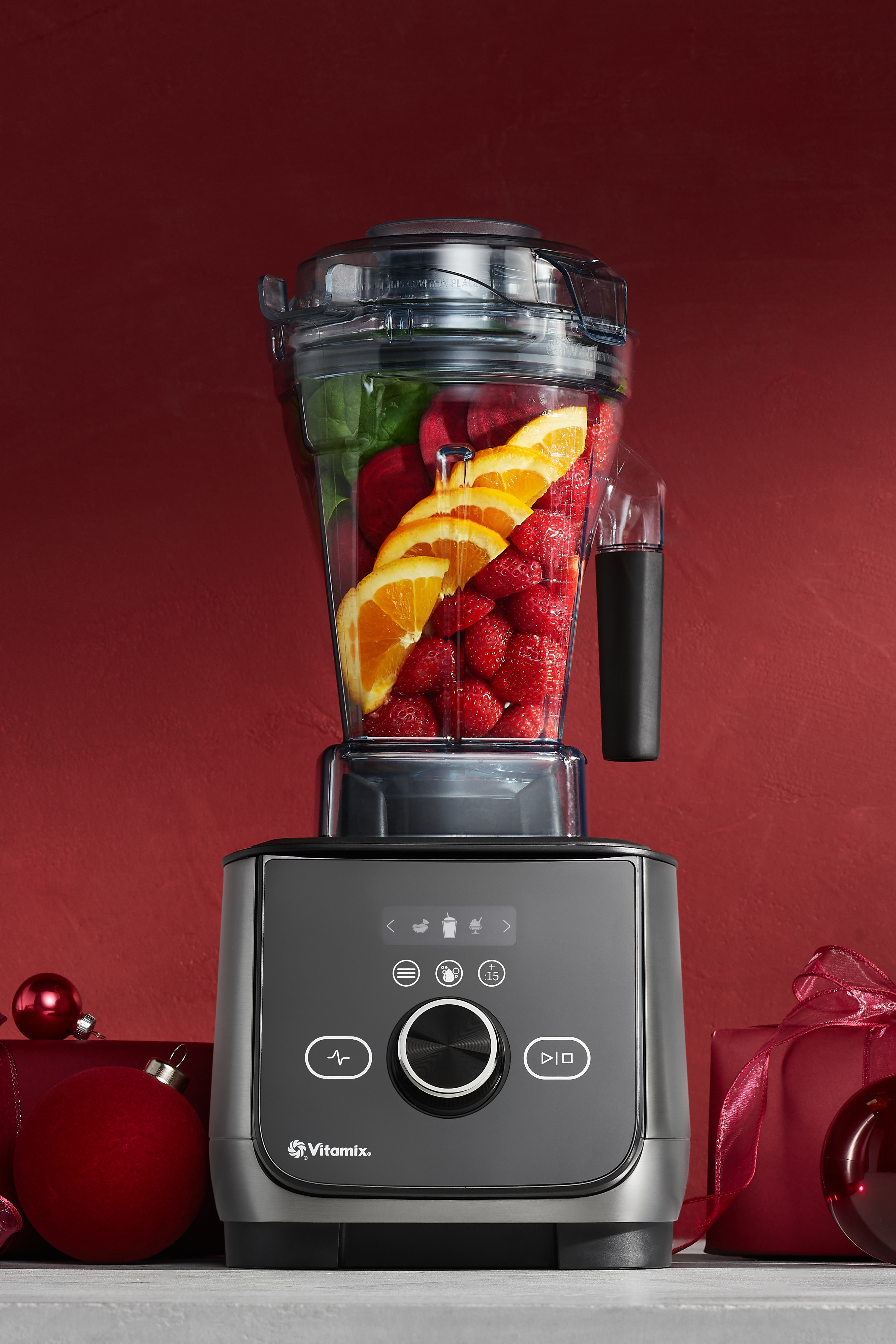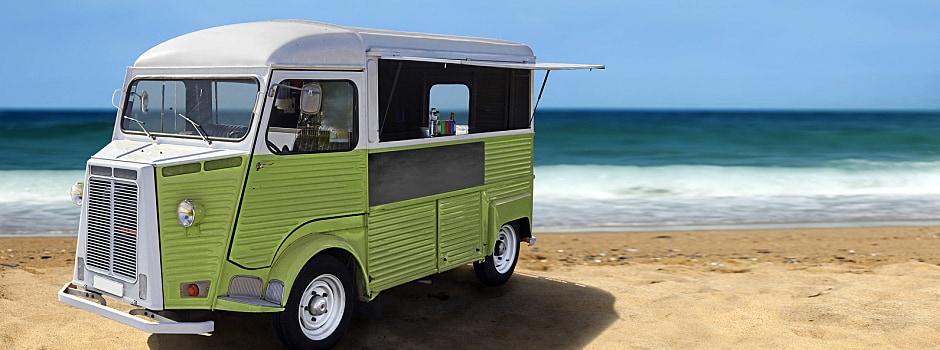In recent years, the food truck business has picked up steam across the U.S., giving aspiring chefs a chance to try out their concepts on the road. Although the prospect of a food truck business may seem easier than a brick-and-mortar operation, there are many factors to consider before hitting the road. Operators must consider all that goes into obtaining a truck, securing permits, and plotting out where to park and serve customers. Once the truck is in operation, a marketing plan is also necessary to get the word out. Kim Holstein, of the The Crave Bar, and Justin McLaughlin, of Bowl'd Creations, shared what they've learned from operating a food truck. Here's what they had to say.
Before You Hit the Road
It's important to define your concept from the start. For Holstein, she already had a product, a gourmet ice cream bar on a pretzel stick called the Crave Bar, so bringing back the nostalgia of an ice cream truck was an easy decision. For McLaughlin, the concept of acai bowls was something he'd seen a lot on the West Coast, but he knew it would be new territory back in Connecticut. The decision to invest in a food truck made it easier for him and his partner to launch their business.
In terms of securing the truck, it wasn't hard for McLaughlin. They were able to retrofit a coffee truck that was no longer in operation. It already had a preparation refrigerator and some of the tools they needed, which is a big part of getting started. The next step is the permitting process, which is one of the biggest hurdles for most food truck operators. For Holstein, it took months from concept to operation because of Chicago permitting. McLaughlin had to take into consideration all the towns in Connecticut where he wanted to operate his food truck, because each town had a different permitting process. From there, he was able to start securing permits, getting health inspections done, and obtaining insurance. It's important to be realistic about the time it will take to just get on the road.
Where to Find Customers
Once your truck is ready to go, it's all about finding customers and enticing them to come back. Both Holstein and McLaughlin felt that events and large festivals would be the best way to get the word out about their new endeavors. However, once they did a few events, they realized that although these festivals got them a burst of sales, most were one-time customers and it wasn't worth the cost of the event.
Holstein now takes her truck downtown most of the time and has a loyal following. She gets the word out via Instagram, Twitter, and Facebook. At the beginning of the week, McLaughlin posts a schedule on social media to let customers know where the truck will be throughout the week. He also relies heavily on the photos of food that people share on social media to spread the word about their acai bowls. Social media is a key component for the marketing of most food truck businesses.
Lessons Learned
For both businesses, there have been many lessons learned. "For us, the way we market has been a lot of trial and error, " says McLaughlin. Now they follow their customers, moving strategically into markets where they know they'll have a large customer base. This didn't come without a few misses in towns that didn't end up being as profitable as expected. McLaughlin also wants to make sure people know all that goes into working on a truck. "It's not just getting on the truck and serving food," he says. "There's a ton that goes into it—between prep, breakdown and marketing ... we are easily working seven days a week." Holstein recommends finding a mentor who has been in the food truck business for a while and can give advice on the logistics. "There are so many details, restrictions, and rules ... the licensing process can be intense," she says. Holstein adds that the food truck community is filled with great people, who are willing to help others in the business and can offer you valuable advice. Reaching out to other operators can help you start your food truck journey off on the right foot.
Related Articles

Restaurant Business Plan Mistakes to Avoid
When writing a restaurant business plan, make sure to follow these tips and avoid mistakes that previous entrepreneurs have made.

How to Handle Negative Online Customer Reviews
Managing negative online customer reviews can be tough. Here are some tips to help you maintain your reputation and retain customers.

Social Media for Restaurants: All Your Questions Answered
Creating social media for restaurants doesn't have to be overwhelming. Follow these simple tips to establish a successful strategy for your business.



